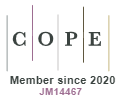O desenvolvimento urbano baseado no conhecimento como estratégia para promoção de cidades inteligentes e sustentáveis
DOI:
https://doi.org/10.5585/geas.v9i1.18740Palavras-chave:
Cidades inteligentes e sustentáveis, Desenvolvimento urbano baseado no conhecimento, Desenvolvimento urbano sustentável, Economia do conhecimento, Desenvolvimento baseado no conhecimento.Resumo
Na era do conhecimento, o rápido progresso tecnológico, especialmente no campo das tecnologias de informação e comunicação, é visto como o principal aliado para responder às crescentes crises ambientais e socioeconômicas urbanas. Nesse contexto, as cidades inteligentes e sustentáveis são aquelas que empregam tecnologia e inovação para melhorar a qualidade de vida de seus cidadãos e a eficiência dos serviços, buscando o desenvolvimento urbano sustentável. Na prática, entretanto, diversos desafios se impõem às cidades que buscam tornar-se inteligentes e sustentáveis. Para agregar as dimensões de inteligência e sustentabilidade, as cidades precisam de soluções desenhadas localmente e planejamento urbano estratégico integrado e equilibrado. Um modelo estratégico aderente a esses requisitos é o Desenvolvimento Urbano Baseado no Conhecimento (DUBC), que articula quatro domínios de desenvolvimento baseado no conhecimento (econômico, social, espacial e institucional) para um processo de transformação urbana de longo prazo, no contexto da nova economia do conhecimento e da competitividade global. Por meio de revisão de literatura, este artigo tem como objetivo apresentar e discutir os principais aspectos conceituais e de aplicação do DUBC como uma abordagem estratégica para a promoção de cidades inteligentes e sustentáveis. Os resultados indicam que o DUBC pode contribuir ao oferecer uma abordagem multidimensional e integrada para o planejamento urbano estratégico que inclui a implementação de tecnologias urbanas, desenvolvidas por processos endógenos de inovação e voltadas a um desenvolvimento urbano verdadeiramente inteligente e sustentável.Downloads
Referências
Ahvenniemi, H., Huovila, A., Pinto-Seppä, I., & Airaksinen, M. (2017). What are the differences between sustainable and smart cities?. Cities, 60, 234-245.
Albino, V., Berardi, U., & Dangelico, R. M. (2015). Smart cities: Definitions, dimensions, performance, and initiatives. Journal of urban technology, 22(1), 3-21.
Bugliarello, G. (2004). Urban knowledge parks, knowledge cities and urban sustainability. International Journal of Technology Management, 28(3-6), 388-394.
Bugliarello, G. (2006). Urban sustainability: Dilemmas, challenges and paradigms. Technology in Society, 28(1-2), 19-26.
Caragliu, A., Del Bo, C., & Nijkamp, P. (2011). Smart cities in Europe. Journal of urban technology, 18(2), 65-82.
Carrillo, F. J. (2002). Capital systems: implications for a global knowledge agenda. Journal of Knowledge Management, 6(4), 379-399.
Carrillo, F. J. (2004). Capital cities: A taxonomy of capital accounts for knowledge cities. Journal of Knowledge Management, 8(5), 28–46.
Carrillo, F. J. (2014). What 'knowledge-based' stands for? A position paper. International Journal of Knowledge-Based Development, 5(4), 402–421.
Carrillo, F. J., Yigitcanlar, T., García, B., & Lönnqvist, A. (2014). Knowledge and the city: Concepts, applications and trends of knowledge-based urban development. Routledge.
Chang, D. L., Sabatini-Marques, J., Da Costa, E. M., Selig, P. M., & Yigitcanlar, T. (2018). Knowledge-based, smart and sustainable cities: a provocation for a conceptual framework. Journal of Open Innovation: Technology, Market, and Complexity, 4(1), 5.
Cooke, P., & Leydesdorff, L. (2006). Regional development in the knowledge-based economy: The construction of advantage. The journal of technology Transfer, 31(1), 5-15.
Cortese, T. T. P., Coutinho, S. V., Vasconcellos, M. D. P., & Buckeridge, M. S. (2019). Tecnologias e sustentabilidade nas cidades. Estudos Avançados, 33(97), 137-150.
Costa, H. S. M. (2000) Desenvolvimento urbano sustentável: uma contradição de termos?. Revista brasileira de estudos urbanos e regionais, (2), 55-71.
Creswell, J. W. (2010) Projeto de Pesquisa: métodos qualitativo, quantitativo e misto. (3rd Ed.). Artmed. Porto Alegre.
Dhingra, M., & Chattopadhyay, S. (2016). Advancing smartness of traditional settlements-case analysis of Indian and Arab old cities. International Journal of Sustainable Built Environment, 5(2), 549-563.
Dvir, R., & Pasher, E. (2004). Innovation engines for knowledge cities: an innovation ecology perspective. Journal of knowledge management, 8(5), 16-27.
Edvardsson, I. R., Yigitcanlar, T., & Pancholi, S. (2016). Knowledge city research and practice under the microscope: a review of empirical findings. Knowledge Management Research & Practice, 14(4), 537-564.
Ergazakis, K., Metaxiotis, K., & Psarras, J. (2004). Towards knowledge cities: conceptual analysis and success stories. Journal of knowledge management, 8(5), 5-15.
Etzkowitz, H., & Zhou, C. (2017). Hélice Tríplice: inovação e empreendedorismo universidade-indústria-governo. Estudos avançados, 31(90), 23-48.
Fachinelli, A. C., Carrillo, F. J., & D'Arisbo, A. (2014). Capital system, creative economy and knowledge city transformation: Insights from Bento Gonçalves, Brazil. Expert Systems with Applications, 41(12), 5614–5624.
Fachinelli, A. C., D’Arrigo, F. P., & Giacomello, C. P. (2015). Open data for sustainability performance assessment in Brazilian cities. Australian Journal of Basic and Applied Sciences, 9(20), 32-38.
Fachinelli, A. C., D'Arrigo, F. P., & Breunig, K. J. (2018). The value context in knowledge-based development: revealing the context factors in the development of Southern Brazils Vale dos Vinhedos region. Knowledge Management Research & Practice, 16(1), 32-41.
Florida, R. (2002). The economic geography of talent. Annals of the Association of American geographers, 92(4), 743-755.
Harzing, A. W., & Alakangas, S. (2016). Google Scholar, Scopus and the Web of Science: a longitudinal and cross-disciplinary comparison. Scientometrics, 106(2), 787-804.
Ivaldi, E., Penco, L., Isola, G., & Musso, E. (2020). Smart Sustainable Cities and the Urban Knowledge-Based Economy: A NUTS3 Level Analysis. Social Indicators Research, 150(1), 45–72.
Knight, R. (1995). Knowledge-based development: Policy and planning implications for cities. Urban Studies, 32(2), 225–260.
Leite, C., Awad, J. C. M. (2012). Cidades sustentáveis, cidades inteligentes: desenvolvimento sustentável num planeta urbano. Bookman. Porto Alegre.
Lönnqvist, A., Käpylä, J., Salonius, H., & Yigitcanlar, T. (2014). Knowledge that matters: Identifying regional knowledge assets of the Tampere region. European Planning Studies, 22(10), 2011-2029.
Maiello, A., Battaglia, M., Daddi, T., & Frey, M. (2011). Urban sustainability and knowledge: Theoretical heterogeneity and the need of a transdisciplinary framework. A tale of four towns. Futures, 43(10), 1164-1174.
Mongeon, P., & Paul-Hus, A. (2016). The journal coverage of Web of Science and Scopus: a comparative analysis. Scientometrics, 106(1), 213-228.
Nam, T., & Pardo, T. A. (2011). Conceptualizing smart city with dimensions of technology, people, and institutions. In Proceedings of the 12th annual international digital government research conference: digital government innovation in challenging times (pp. 282-291). Association for Computing Machinery. https://doi.org/10.1145/2037556.2037602
Neirotti, P., De Marco, A., Cagliano, A. C., Mangano, G., & Scorrano, F. (2014). Current trends in Smart City initiatives: Some stylised facts. Cities, 38, 25-36.
Phillis, Y. A., Kouikoglou, V. S., & Verdugo, C. (2017). Urban sustainability assessment and ranking of cities. Computers, Environment and Urban Systems, 64, 254-265.
Sabatini-Marques, J., Yigitcanlar, T., Schreiner, T., Wittmann, T., Sotto, D., & Inkinen, T. (2020). Strategizing Smart, Sustainable, and Knowledge-Based Development of Cities: Insights from Florianópolis, Brazil. Sustainability, 12(21), 8859.
Spinosa, L. M., Krama, M. R., & Hardt, C. (2018). Desenvolvimento urbano baseado em conhecimento e ecossistemas de inovação urbanos: uma análise em quatro cidades brasileiras. Eure (Santiago), 44(131), 193-214.
Trindade, E. P., Hinnig, M. P. F., da Costa, E. M., Sabatini-Marques, J., Bastos, R. C., & Yigitcanlar, T. (2017). Sustainable development of smart cities: A systematic review of the literature. Journal of Open Innovation: Technology, Market, and Complexity, 3(3), 11.
Vojnovic, I. (2014). Urban sustainability: Research, politics, policy and practice. Cities, 41, S30–S44.
Yigitcanlar, T. (2009). Planning for knowledge-based urban development: global perspectives. Journal of Knowledge Management, 13(5), 228-242.
Yigitcanlar, T. (2011). Position paper: Redefining knowledge-based urban development. International Journal of Knowledge-Based Development, 2(4), 340–356.
Yigitcanlar, T. (2014a). Innovating urban policymaking and planning mechanisms to deliver knowledge-based agendas: a methodological approach. International Journal of Knowledge-Based Development, 5(3), 253-270.
Yigitcanlar, T. (2014b). Position paper: Benchmarking the performance of global and emerging knowledge cities. Expert Systems with Applications, 41(12), 5549–5559.
Yigitcanlar, T. (2016). Technology and the city: systems, applications and implications. Routledge. New York.
Yigitcanlar, T., & Kamruzzaman, M. (2015). Planning, Development and Management of Sustainable Cities: A Commentary from the Guest Editors. Sustainability, 7(11), 14677–14688.
Yigitcanlar, T., & Kamruzzaman, M. (2018). Does smart city policy lead to sustainability of cities?. Land Use Policy, 73, 49-58.
Yigitcanlar, T., & Lönnqvist, A. (2013). Benchmarking knowledge-based urban development performance: Results from the international comparison of Helsinki. Cities, 31, 357-369.
Yigitcanlar, T., Edvardsson, I. R., Johannesson, H., Kamruzzaman, M., Ioppolo, G., & Pancholi, S. (2017). Knowledge-based development dynamics in less favoured regions: insights from Australian and Icelandic university towns. European Planning Studies, 25(12), 2272-2292.
Yigitcanlar, T., Kamruzzaman, M., Foth, M., Sabatini-Marques, J., da Costa, E., & Ioppolo, G. (2019). Can cities become smart without being sustainable? A systematic review of the literature. Sustainable cities and society, 45, 348-365.
Yigitcanlar, T., Lönnqvist, A., & Salonius, H. (2014). Analysis of a city-region from the knowledge perspective: Tampere, Finland. VINE, 44(3), 445-466.
Yigitcanlar, T., O'Connor, K., & Westerman, C. (2008). The making of knowledge cities: Melbourne's knowledge-based urban development experience. Cities, 25(2), 63-72.
Yigitcanlar, T., Sabatini-Marques, J., Lorenzi, C., Bernardinetti, N., Schreiner, T., Fachinelli, A., & Wittmann, T. (2018). Towards smart Florianópolis: What does it take to transform a tourist island into an innovation capital?. Energies, 11(12), 3265.
Yigitcanlar, T., Velibeyoglu, K., & Martinez-Fernandez, C. (2008). Rising knowledge cities: the role of urban knowledge precincts. Journal of knowledge management, 12(5), 8-20.
Downloads
Publicado
Como Citar
Edição
Seção
Licença
Copyright (c) 2020 Larissa Diana Michelam, Tatiana Tucunduva Philippi Cortese, Tan Yigitcanlar, Leonardo Vils

Este trabalho está licenciado sob uma licença Creative Commons Attribution-NonCommercial-ShareAlike 4.0 International License.
- Resumo 2207
- PDF (English) 885
- PDF 906











